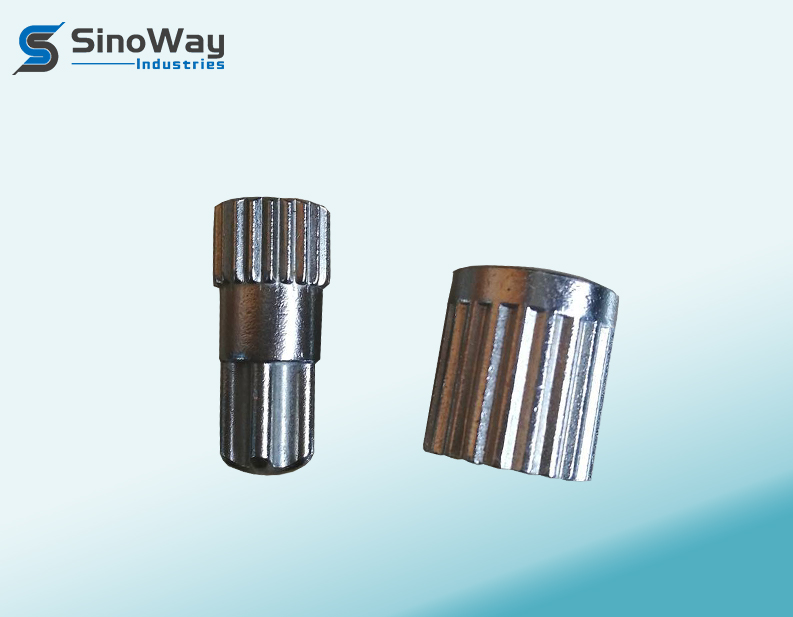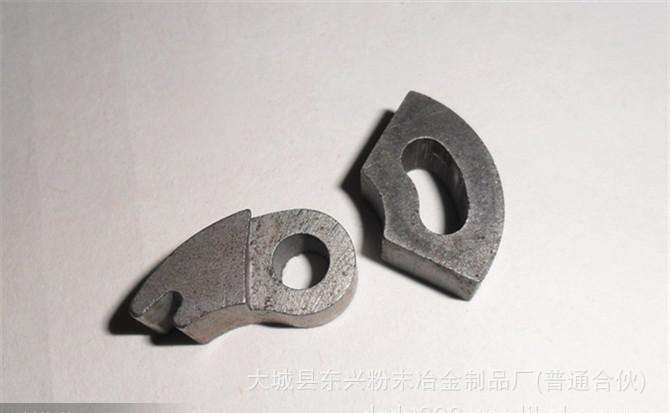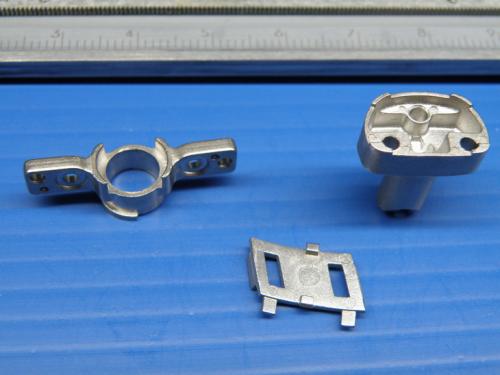Investment casting, also known as lost-wax casting, is a manufacturing process that has been used for thousands of years to create intricate and precise metal components. In the modern industrial landscape, investment casting plays a crucial role in the production of steel components, offering unparalleled precision and versatility. This article will explore the investment casting process, its unique advantages, and its applications, with a focus on Sinoway, a leading sheet metal manufacturer.
Understanding Investment Casting
Investment casting is a sophisticated metal-forming technique that involves creating a wax pattern, which is then encased in a ceramic shell. Once the shell hardens, the wax is melted away, leaving a cavity that is filled with molten metal to form the final product. This method is renowned for its ability to produce complex shapes with high dimensional accuracy and excellent surface finishes.
The Investment Casting Process
The investment casting process can be broken down into several key stages, each of which is critical to achieving the desired outcome. Here is a detailed look at the steps involved:
1. Pattern Creation
The process begins with the creation of a wax pattern, which is an exact replica of the desired part. The wax patterns can be produced using injection molding techniques, allowing for high precision and repeatability. Sinoway uses advanced computer-aided design (CAD) software to design these patterns, ensuring that they meet the specific requirements of their clients.
2. Assembly
Once the wax patterns are created, they are assembled onto a central wax sprue to form a tree-like structure. This assembly allows multiple components to be cast simultaneously, improving efficiency and reducing production costs.
3. Shell Building
The assembled wax tree is then repeatedly dipped into a ceramic slurry and coated with fine sand. This process is repeated several times to build a thick, durable shell around the wax patterns. The shell must be strong enough to withstand the molten metal’s pressure and heat during casting.
4. Wax Removal
After the ceramic shell has dried and hardened, the assembly is heated in a kiln to melt and remove the wax. This step leaves behind a hollow ceramic shell that perfectly replicates the original wax patterns.
5. Metal Pouring
The ceramic shell is then preheated to remove any residual moisture and to prevent thermal shock during metal pouring. Molten steel is poured into the shell, filling the cavities left by the wax patterns. Sinoway employs state-of-the-art furnaces to ensure precise temperature control and optimal metal quality.
6. Shell Removal
Once the metal has cooled and solidified, the ceramic shell is broken away to reveal the cast steel components. This step may involve mechanical or chemical methods to ensure that the delicate details of the castings are not damaged.
7. Finishing
The final step in the investment casting process involves finishing the cast components. This may include processes such as grinding, machining, and polishing to achieve the desired surface finish and dimensional tolerances. Sinoway’s skilled technicians use advanced equipment to perform these finishing operations with precision and efficiency.
Advantages of Investment Casting
Investment casting offers several distinct advantages over other metal-forming techniques, making it an ideal choice for producing steel components. Here are some of the key benefits:
- Complex Geometries: Investment casting can produce intricate and complex shapes that would be difficult or impossible to achieve with other methods.
- High Precision: The process allows for tight tolerances and excellent dimensional accuracy, reducing the need for additional machining.
- Superior Surface Finish: The ceramic shell provides a smooth surface finish, minimizing the need for surface treatment.
- Material Versatility: Investment casting can be used with a wide range of metals and alloys, including various grades of steel.
- Cost Efficiency: The ability to cast multiple components simultaneously reduces production costs and lead times.
Applications of Investment Casting in Steel Manufacturing
Investment casting is widely used in various industries to produce steel components that require high precision and reliability. Sinoway, as a leading sheet metal manufacturer, leverages investment casting to serve a diverse range of sectors, including:
Aerospace
In the aerospace industry, investment casting is used to produce critical components such as turbine blades, engine parts, and structural elements. The process’s ability to create complex shapes with high precision is essential for meeting the stringent performance and safety standards of aerospace applications.
Automotive
The automotive sector benefits from investment casting in the production of engine components, transmission parts, and suspension elements. The process allows for the creation of lightweight, high-strength components that contribute to improved fuel efficiency and vehicle performance.
Medical
Investment casting is also utilized in the medical field to produce surgical instruments, orthopedic implants, and dental components. The precision and surface finish achieved through this process are crucial for ensuring the safety and effectiveness of medical devices.
Industrial Equipment
Sinoway serves the industrial equipment sector by providing investment-cast steel components for machinery, pumps, valves, and other critical applications. The durability and reliability of investment-cast parts make them ideal for use in demanding industrial environments.
Sinoway: A Leader in Investment Casting for Steel
As a prominent sheet metal manufacturer, Sinoway has established itself as a leader in the investment casting industry. With a commitment to innovation and quality, Sinoway offers a comprehensive range of investment casting services tailored to meet the needs of its diverse clientele.
Sinoway’s investment casting facility is equipped with cutting-edge technology and staffed by experienced professionals dedicated to delivering exceptional results. The company’s focus on precision, efficiency, and customer satisfaction has earned it a reputation for excellence in the field of steel investment casting.
In addition to its investment casting capabilities, Sinoway provides a full suite of sheet metal fabrication services, including laser cutting, bending, welding, and assembly. This comprehensive approach allows Sinoway to offer integrated solutions that meet the most demanding specifications and timelines.
Conclusion
Investment casting is a powerful manufacturing process that offers unparalleled precision and versatility in the production of steel components. With its ability to create complex shapes and achieve high dimensional accuracy, investment casting is an invaluable tool for industries ranging from aerospace to medical.
Sinoway, as a leading sheet metal manufacturer, leverages the advantages of investment casting to deliver high-quality steel components to its clients. By combining advanced technology with a commitment to excellence, Sinoway continues to set the standard for investment casting in the modern industrial landscape.
Whether you are in need of intricate aerospace components or durable industrial parts, investment casting offers a reliable and cost-effective solution. With Sinoway’s expertise and dedication to quality, you can trust that your investment-cast steel components will meet the highest standards of performance and reliability.







